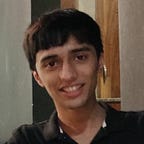Unfinity
There is not a single theory more featured in nightmares than Gödel’s Incompleteness Theorems. Their presence exists as a conceptual black box, forever preventing complete understanding. When they were officially proven in the 1930s, they single-handedly put Hilbert’s dream for the future of mathematics in the realm of impossibility. Some claim they also stop us from ever knowing the complete list of rules that run our Universe, a grim possibility to consider.
In the early 20th century, mathematics was going through a crisis of unprecedented proportions: several contradictions and inconsistencies were being found in the popular framework, necessitating an immediate fix of the very foundation of math. One famous paradox was Russell’s Paradox. Informally, it goes like this: some groups don’t contain themselves, like the set of all trains, while some do, like the set of everything which isn’t a train. The quandary is this: does the set of all the sets which don’t contain themselves contain itself? Due to the principle of explosion – basically a fancy way of saying that anything can be proved from a lie – it showed that the prevailing Naïve Set Theory was inconsistent.
In response to the crisis, Dr. David Hilbert, he of Unlimited Hospitality, gave a lecture in which he called for a research project in metamathematics (the study of the logic and process of math) to solidify and secure the foundation of maths. He put forth 5 points any such foundation should satisfy:
- Formalization: All mathematical statements should be written in precise formal language and manipulated with well-defined rules.
- Completeness: All true statements should be capable of being proven to be so within the axioms.
- Consistency: No statement can be proven to be true and false at the same time.
- Conservation: Anything proved using ‘ideal objects’ (like infinite sets) which applies to ‘real objects’ should be provable using only ‘real objects.’
- Decidability: There should be a method capable of determining the truth of any mathematical statement.
Hilbert’s program gave a logical first step for fixing the framework of mathematics, and several set to work on it. It was thus a severe shock for most when Kurt Gödel revealed his work, which showed that such a system was impossible.
Gödel published his first theorem in 1931, which states that no consistent formal system in which a certain amount of basic arithmetic can be performed can be complete. This means that no matter what axioms you take, there will always be a statement unprovable to be either true or false. He did this by cleverly creating a logical expression that indirectly referred to itself, called the Gödel sentence. Of course, the existence of one Gödel sentence means there are infinite unprovable statements in any given framework.
Gödel’s Second Incompleteness theorem states that no system within which basic arithmetic can be performed can ever prove its own consistency. It basically says that if a framework manages to prove itself, then by default it is not logical, sort of like how scammers try to reassure you that they’re ‘totally legit,’ making them appear even more suspicious instead.
These two proofs were taken surprisingly well by most of the mathematical community, though there were some dissidents. Hilbert apparently lost his temper on hearing of the theorems but eventually accepted their truth and moved on. Ernst Zermelo allegedly found a ‘fatal flaw’ in Gödel’s proof and promptly wrote to him about it. Gödel pointed out that Zermelo assumed that the idea of truth in a system is definable in that system, an unproven hypothesis – indeed, this would go on to be disproven by Tarski, who found that arithmetical truth could not be defined in arithmetic. Zermelo did not relent and instead went on and published scathing criticisms of Gödel, who ignored them. Ludwig Wittgenstein had several of his musings about the Incompleteness theorem published after his death, where he seemed to confuse the ideas of truth and provability. In an outburst, Gödel remarked, ‘Has Wittgenstein lost his mind? Does he mean it seriously? He intentionally utters trivially nonsensical statements.’
Gödel’s theorems mean that pure mathematics is inexhaustible, for there will always be problems unsolvable within any set of rules. In a certain way, it provides a strange kind of hope: it basically means that no matter how long humans exist, there will always be something new for us to do.
The implications of Gödel’s work when applied outside of mathematics are not completely clear as of now, with much debate raging in academic circles over it. One particularly high-stakes area affected is physics, specifically the Theory of Everything. The ToE is the ultimate dream of any physicist: a single framework capable of explaining each and every process in the Universe, from the microscopic to the galactic. Here, Gödel’s theorems provide a dismal view, with several prominent physicists, including Stephen Hawking, claiming that the ToE is impossible. Since physics is based majorly on mathematics, any incompleteness in the underlying math will affect the physics above.
Others argue against this, claiming that Incompleteness Theorems are irrelevant for computable physics, only masking out the non-computable parts. One proponent of this was Jürgen Schmidhuber, who even constructed theoretical universes with such properties. However, all this proves is the possibility of such Universes and does not shed any light on our own cosmos.
Gödel went on to discover several other game-changing theorems, though it is still the two Incompleteness ones he is most associated with today. Just like mathematics, this article will also remain unfin
Proofreaders: Mokshit N.
